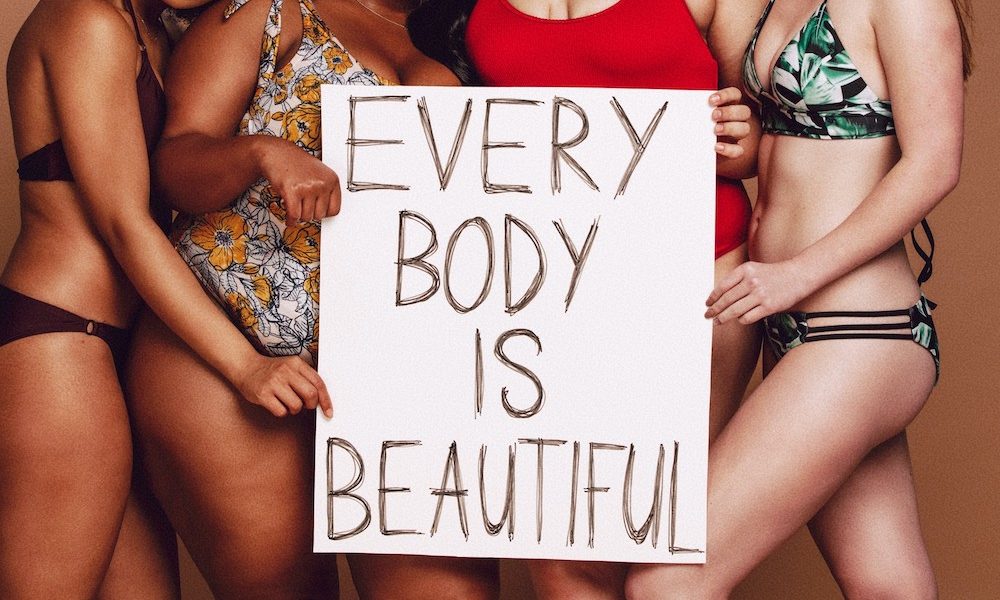The discrimination of people in larger bodies can harmfully impact those who experience it firsthand. Here’s how you can help combat weight stigma in everyday situations.
BY: AMANDA MITTMAN, RD, LDN
There’s no doubt about it – the body positivity movement is on the rise. And along with its growth is an increased awareness around weight stigma.
According to NEDA, weight stigma (also known as weight bias or weight discrimination) is “discrimination or stereotyping based on a person’s size. Weight stigma also manifests in “fatphobia, the dislike or fear of being or becoming fat.”
In a 2018 study by Tomiyama, et al., it was defined as “the social rejection and devaluation that accrues to those who do not comply with prevailing social norms of adequate body weight and shape.”
For those of us that have never heard this term before or have never experienced weight bias, here’s a reality check:
It is very much alive and thriving, and it is incredibly harmful.
Weight stigma means a person in a large body may not have access to competent healthcare. It means that a person may tell a doctor that something doesn’t feel right, only to be prescribed weight loss when medical treatment is necessary.
It means they may not have accessible seating at healthcare offices, restaurants, or planes. They may be passed over for jobs or promotions due to their weight. They are forced to pay more through a “fat tax” for clothing and other standard merchandise that prioritizes people in smaller sizes.
It means that they struggle looking into a mirror because society tells them that there is something wrong with being a higher weight, and it should be avoided looking at all costs. And over time, it can lead to destructive periods of body dissatisfaction, depression, and eating disorders.
If you’re thinking, “Well, it’s unhealthy for people to be in larger bodies and we shouldn’t cater to them”, I’d like to offer this perspective.
All human beings deserve to feel accepted, to be shown compassion and to be cared for, regardless of their size.
In fact, weight stigma has been shown to be a driving force for weight gain and poorer health outcomes. Here are a few things that you can do to combat weight bias, no matter what your body size.
1. Be an ally.
Speak up when you see something that exhibits weight discrimination. For example, if you or someone else needs suitable chairs at the workplace, advocate for getting chairs that fit all bodies.
2. Quit the “fat” jokes.
Really, are we in elementary school? Just stop. It’s hurtful and harmful. If you hear someone making a fatphobic comment, let them know that it isn’t funny and encourage them to be more considerate.
3. Set boundaries.
Tell your family and friends that you don’t accept weight bias talk, and find a way to educate them without placing shame or judgment on their current ideals. The Association for Health & Size Diversity is a great place to start.
4. Teach your children diversity.
Share with them that bodies come in all diverse shapes and sizes, and it’s what makes us all beautifully unique. Kids tend to learn a message from society that “fat is bad” at an early age. Show them how to appreciate diversity, whether that be in shapes, sizes, colors, genders, and sexual orientation. Love is love is love.
5. Find other allies and friends who can support you.
This can be difficult and lonely work, and finding support through community can be incredibly helpful in times when you are discouraged. Social media and online communities make it especially easy to connect with those who share your perspective.
And together, let’s keep fighting the fight to create health equity for all.
Adapted from the original post.
Amanda Mittman, RD, LDN is a Registered Dietitian located in Western Massachusetts, working as both an outpatient dietitian in integrative family medicine and in her own private practice. Amanda takes a non-diet, weight neutral approach to working with clients, focusing on healthy behaviors and outcomes without a focus on weight. She is currently getting her certification as an Intuitive Eating counselor and her Master’s degree in Functional Nutrition with a hope to bridge the two, often very different, perspectives together. Find out more about Amanda’s passion to help women feel awesome in their body at www.happyvalleynutrition.com.


